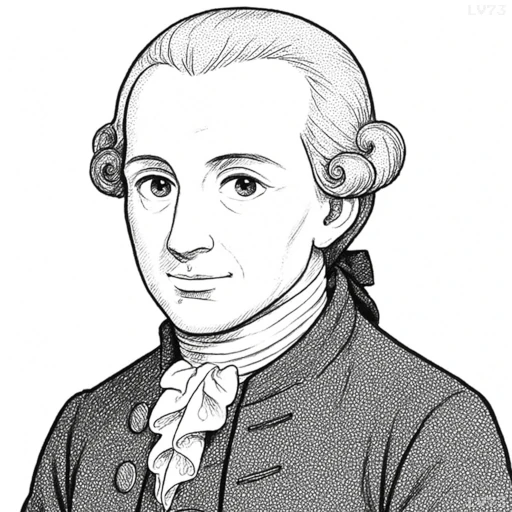“Out of timber so crooked as that from which man is made nothing entirely straight can be carved.”

- April 22, 1724 – February 12, 1804
- Born in Germany (East Prussia)
- Philosopher
table of contents
Quote
“Out of timber so crooked as that from which man is made nothing entirely straight can be carved.”
Explanation
In this quote, Immanuel Kant expresses a rather pessimistic view of human nature, suggesting that humans are inherently flawed, and thus it is impossible to create something perfect or entirely good from such a flawed substance. The crooked timber symbolizes the inherent imperfections and moral failings of human beings. Kant implies that moral and ethical ideals can never be fully realized because humans, by their very nature, are susceptible to self-interest, irrationality, and immorality. Even the best efforts to form a just and perfect society, or to cultivate moral character, are bound to fall short due to these inherent human flaws. In this view, perfection is an ideal that may never be fully attainable.
In modern society, this quote speaks to the limitations of human nature and the challenges in striving for utopian ideals. In fields like politics, ethics, and psychology, this view suggests that human beings, while capable of great achievements and moral progress, will always be subject to flaws and contradictions. For example, political systems can aim for justice and equality, but they often fall short because of corruption, greed, or human error. In personal development, this quote can remind us that striving for moral perfection is an ongoing challenge, and that mistakes and shortcomings are an inevitable part of human life. Instead of expecting perfection, realistic goals are set, acknowledging the imperfections that characterize humanity.
Historically, Kant’s statement reflects his Enlightenment perspective on human nature. During this time, there was a push to elevate human reason and the potential for moral and intellectual improvement. However, Kant’s view acknowledges that even within the rational framework of human autonomy, individuals are bound by their limitations. This contrasts with earlier ideas that suggested humans could strive for perfectibility (as seen in certain utopian visions of the Renaissance or medieval religious ideals). Today, Kant’s view of human imperfection continues to influence realist philosophy and pragmatic political theories, where the focus is on progress and improvement, rather than on achieving idealized perfection. It reminds us that the human condition, while capable of great moral achievements, is also constrained by its inherent limitations.
Would you like to share your impressions or related stories about this quote in the comments section?
